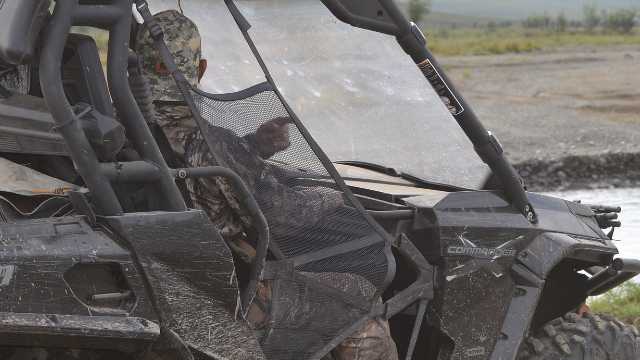By Sterling McGinn
More information on the proposed changes to the county ORV ordinance was discussed at the May 16 meeting of the Luce County Commissioners.
At the previous meeting, Luce County Road Commission Engineer and Manager Stuart McTiver presented the proposed changes to the commissioners.
McTiver said ORVs are helping deteriorate of the edge of the pavement Because the gravel shoulders are narrow, ORVs are forced to travel with two tires on the shoulder and two tires on the pavement.
That also creates dust, which is another issue. McTiver said the dust can make it hard for automobiles to see around the dust clouds.
The main solution would be to allow ORVs to operate with all four wheels on the paved surfaces of the highway.
At the April meeting, an ad-hoc committee was formed consisting of McTiver, commissioner Brandon Wheeler and Luce County Sheriff Eric Gravelle.
The committee reviewed ordinances from Alger, Chippewa, Schoolcraft and Mackinac counties. McTiver also reviewed ordinances from other counties throughout the state—specifically those that had language regarding how ORVS are operated when traveling with all wheels on blacktop.
“One that I did find and like the language of is from Lake County,” McTiver said. “They define the maintained portion of the road as improved, designated, and ordinarily used for vehicular traffic and doesn’t include within its meaning the shoulder or right-of-way. This means anything outside of the travel portion of the road, is technically not designed for vehicle traffic. The ditches are used for water travel and allowing drainage and the shoulder is actually not designed for vehicular traffic.”
Deer Park resident Jim Brettner dislikes the idea of having ORVs drive fully on the pavement, which he thinks would impede the flow of traffic.
“To allow ORVs on the roadway would be illegal under the laws of the State of Michigan,” Brettner said. “In a conversation I had with the Michigan State Police, they supplied the rule for impeding the flow of traffic.”
Brettner, who is president of ECORD of Luce County (Educating to Control Off Road Damage), thinks the ordinance be unchanged, or that ORVs should be forced to travel only trails and gravel roads.
Also discussed in April was a proposal to increase the ORV speed limit from 25 to 35 miles per hour. During his research, McTiver said he found no ordinance with a speed limit over 25 mph.
“I would retract that, because I don’t think that is the precedence that we want to set and we don’t want to be the first one to go to a higher speed,” McTiver said.
Sheriff Gravelle agreed. “The speed was my major concern, because if you give them 35, they will want 45 and 50,” said Gravelle. “They are not set up for that.”
Though no action was taken by the board that evening, the commissioners want Luce County Prosecutor Josh Freed to review the proposed language changes to the ordinance.
Before any change is implemented, the board will hold a public hearing, which is required anytime an ordinance is changed.












